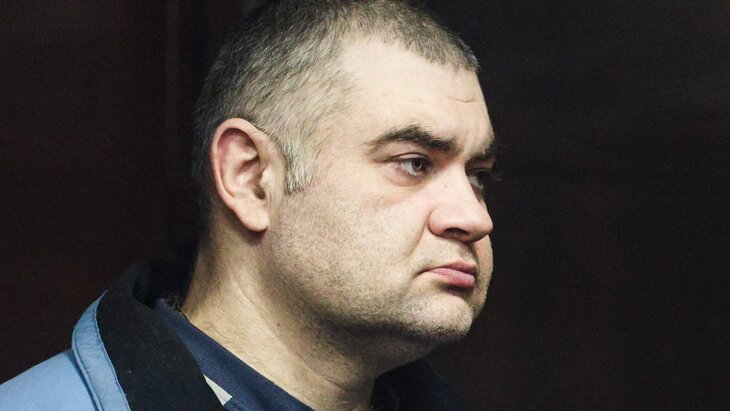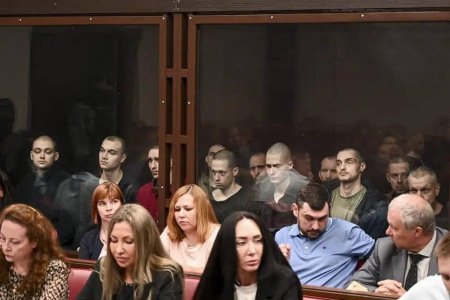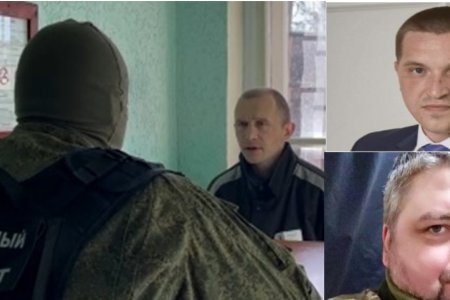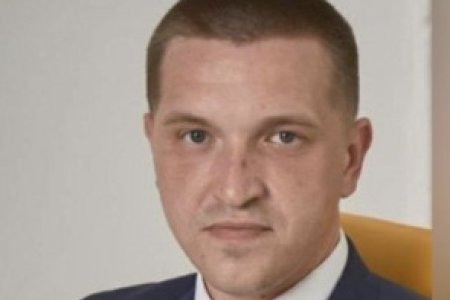
A Russian court has sentenced former Ukrainian soldier Denys Muryha to 16 years’ imprisonment. The prosecution had claimed, and ‘judges’ from Russia’s notorious Southern District Military Court accepted, that Muryha was guilty of ‘undergoing training for the purpose of terrorist activities’ and of ‘taking part in an unlawful armed formation’. The said formation was not unlawful, and Muryha was, in fact, a member of Ukraine's Armed Forces, however all of that was ignored, with the aggressor state’s ‘court’ essentially sentencing an ex-soldier for having defended Ukraine’s sovereignty and territorial integrity.
Graty correspondent Sofia Rostova attended the first hearing in this trial on 9 November 2022, and pointed to the factual discrepancies in the indictment. Not only had the Aidar Battalion ceased to exist as a volunteer battalion before Muryha was called up into the Armed Forces, but he himself was seized by the Russians two months before his ‘official’ arrest.
Muryha was born in August 1984 in Crimea, and was registered both in Crimea, and in the Luhansk oblast where he was living. He has both Ukrainian and Russian citizenship, which made it possible for his captors to put him on trial as a Russian. They have also claimed that he was arrested on 17 May 2022, as he tried to cross the border into Russia. It seems much more likely that Muryha was seized in Rubizhne (Luhansk oblast) after the city fell under Russian occupation following Russia’s full-scale invasion. Any former Ukrainian defender is invariably in danger on territory seized by the Russians, and Muryha’s work, after demobilization, as a firefighter for the emergency services in Luhansk oblast would also have made the Russians target him.
The FSB circulated a video with Muryha on 31 March and it is the supposed ‘confession’ on this which has led the prosecution and ‘court’ to stubbornly ignore the fact that Muryha was not a member of the Aidar Battalion. Since 2014, the FSB has been seizing Ukrainians and holding them incommunicado for long periods, before formally detaining them. Such periods, where the person is totally under FSB control, deprived of access to independent lawyers or contact with family, are essentially always used to extract ‘confessions’ through torture.
It is highly likely that illegal forms of duress were applied to get Muryha to say on the FSB video that he had served in the Aidar Battalion. He also claimed that he had taken part in blowing up a bridge, which killed two so-called militia men from the Russian proxy ‘Donetsk people’s republic’. Given the war waging, such an explosion against a military target seems legitimate, which may be why the incident was used for the FSB’s propaganda video but did not form part of the charges against Muryha.
Russia has used the formal lack of official status for the Aidar Battalion as excuse for calling it an unlawful armed formation acting against Russia’s interests. Although there were scandals around the Battalion which, in early 2015, led to it being dissolved as a separate structure, it was not unlawful, unlike the Russian and pro-Russian armed formations funded and armed by Moscow to seize control of Ukrainian territory. The Battalion, like Ukraine’s Armed Forces, are quite legitimately acting against the ‘interests’ of the current Russian regime which is seeking to destroy Ukraine and seize Ukrainian territory.
During the first hearing on 9 November, Muryha admitted the charges., although then went on to describe his military service, with this making it clear that he had not been in the Aidar Battalion. Since Graty mentions that he was also extremely tearful, it is possible that he pleaded guilty due to the physical and psychological duress placed on him. His account of how he came to be in Russian custody also differed significantly from that presented by the prosecution. Such discrepancies were supposed to have been investigated, however the sentence suggests that any such probe was at most cursory.
The prosecution’s claims about the Aidar Battalion and the situation in occupied parts of Donetsk and Luhansk oblasts are full of distortion and outright lies, however that should not have mattered since the defendant was not in Aidar.
Prosecutor Sergei Aidinov has taken part in imprisoning a huge number of Crimean Tatar and other Ukrainian political prisoners, and here too simply ignored all facts that conflicted with the flawed indictment. The prosecution claimed that Muryha had joined Aidar at some stage, but no later than January 2015 and that he had not voluntarily left Aidar before March 2015 when he entered Ukraine’s Armed Forces.
Muryha was charged with involvement in an unlawful armed formation, not foreseen by legislation of the foreign state, for purposes contradicting the interests of the Russian Federation. This charge, under Article 208 § 2 of Russia’s criminal code, also uses the fact that Ukrainian legislators had not foreseen the need for volunteer battalions because of Russian aggression to push the false claim that lack of formal recognition equated to the Battalion being illegal in Ukraine.
Muryha was also accused of training for the purpose of carrying out terrorist activities, under Article 205.3 of Russia’s criminal code.
The charges did not make sense, or fit the factual evidence, regarding Muryha’s time in the Army, however on 20 June, the ‘court’ in Rostov, under ‘judge’ Kirill Krivtsov found Muryha guilty of both charges and passed a shocking 16-year sentence.



